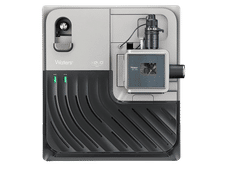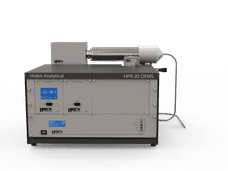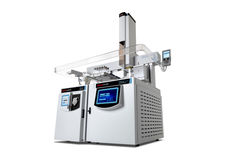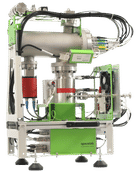Thermo Obtains Exclusive License for Electron Transfer Dissociation (ETD) Technology from the University of Virginia
Advertisement
Thermo Electron Corporation has concluded a licensing agreement with the University of Virginia for Electron Transfer Dissociation (ETD), an new ion fragmentation technology that provides sequence information not available from conventional methods currently in use on ion trap mass spectrometers.
Ken Miller, product marketing manager for Proteomics at Thermo, stated, "ETD is an application that benefits immensely from the large ion storage capacity and fast cycle time of Thermo's Finnigan(TM) LTQ(TM) linear ion trap mass spectrometer. As a result, we fully expect ETD to be available for this instrument before the end of 2006."
According to Miller, the power of ETD on the Finnigan LTQ has already been demonstrated for mapping of post-translational modification (PTM) sites, particularly phosphorylation, allowing more comprehensive proteomic sample profiling than with collision-induced dissociation (CID) alone, and fragmenting and analyzing large peptide fragments as well as intact proteins.
"ETD will help shed new light on many important, unanswered questions in contemporary biology," said Dr. Don Hunt, principal investigator at the University of Virginia. "ETD represents a landmark advance in the field of proteomics. This new methodology is a powerful and reliable analytical solution for protein characterization."
Dr. Hunt has used ETD to characterize the biochemical basis of histone protein action in the regulation of DNA transcription. Additionally, he has shown that the pattern of histone phosphorylation, methylation and acetylation is critical to DNA expression. "These studies would not have been possible without ETD," added Hunt.
Other news from the department science
These products might interest you
Most read news
More news from our other portals
See the theme worlds for related content
Topic World Mass Spectrometry
Mass spectrometry enables us to detect and identify molecules and reveal their structure. Whether in chemistry, biochemistry or forensics - mass spectrometry opens up unexpected insights into the composition of our world. Immerse yourself in the fascinating world of mass spectrometry!

Topic World Mass Spectrometry
Mass spectrometry enables us to detect and identify molecules and reveal their structure. Whether in chemistry, biochemistry or forensics - mass spectrometry opens up unexpected insights into the composition of our world. Immerse yourself in the fascinating world of mass spectrometry!





































































